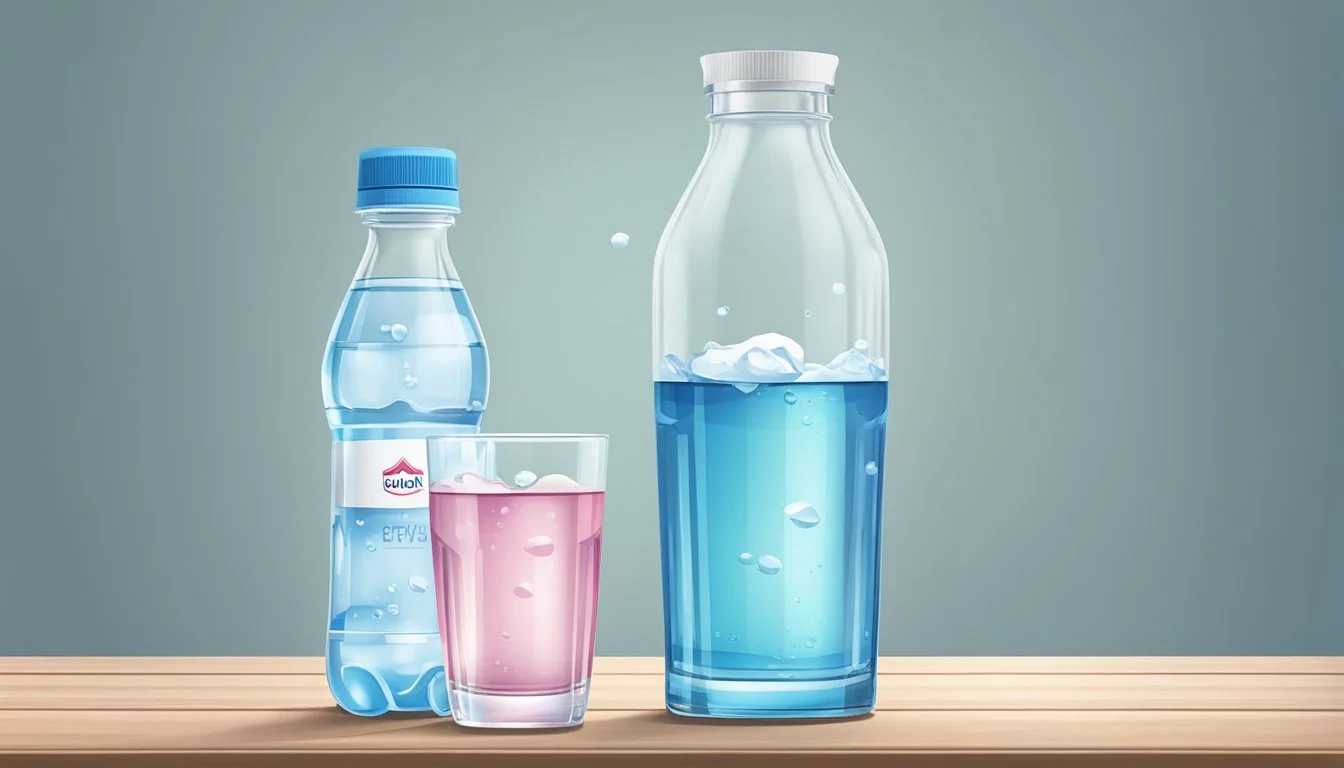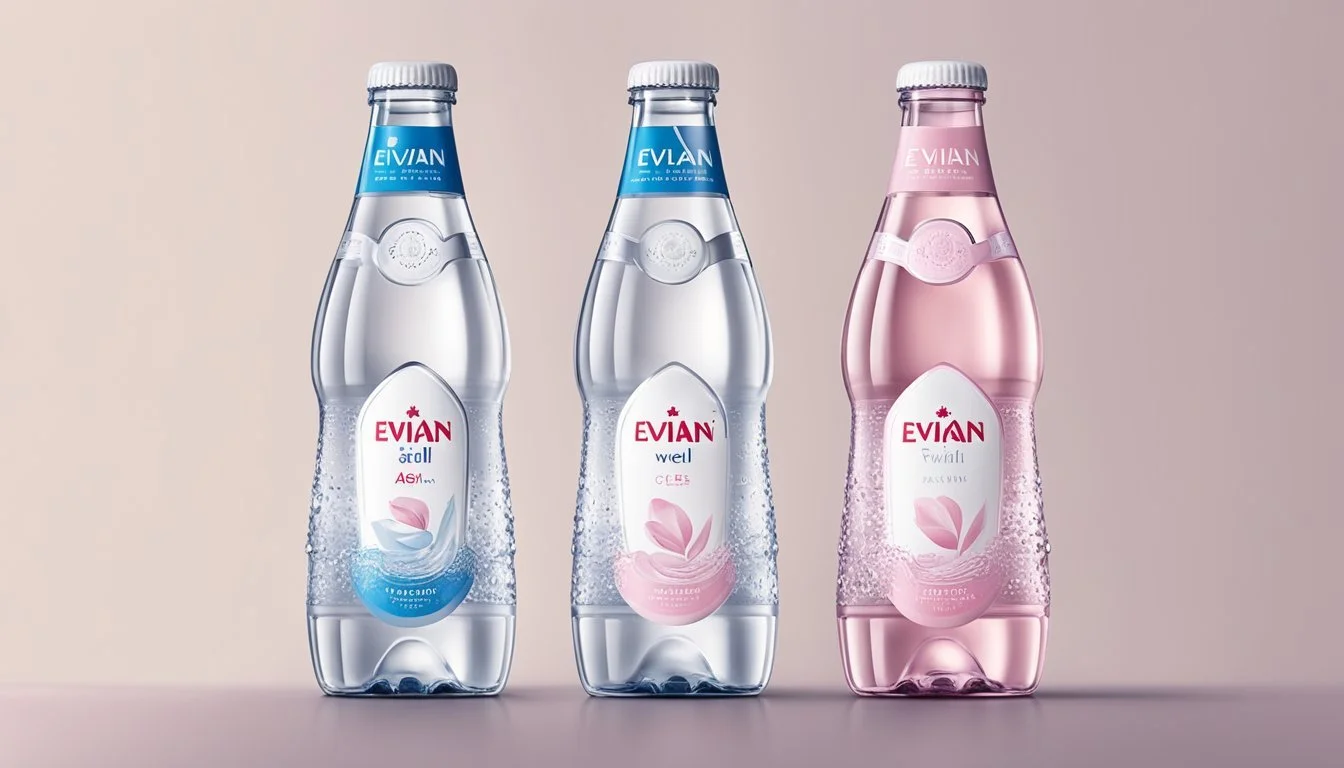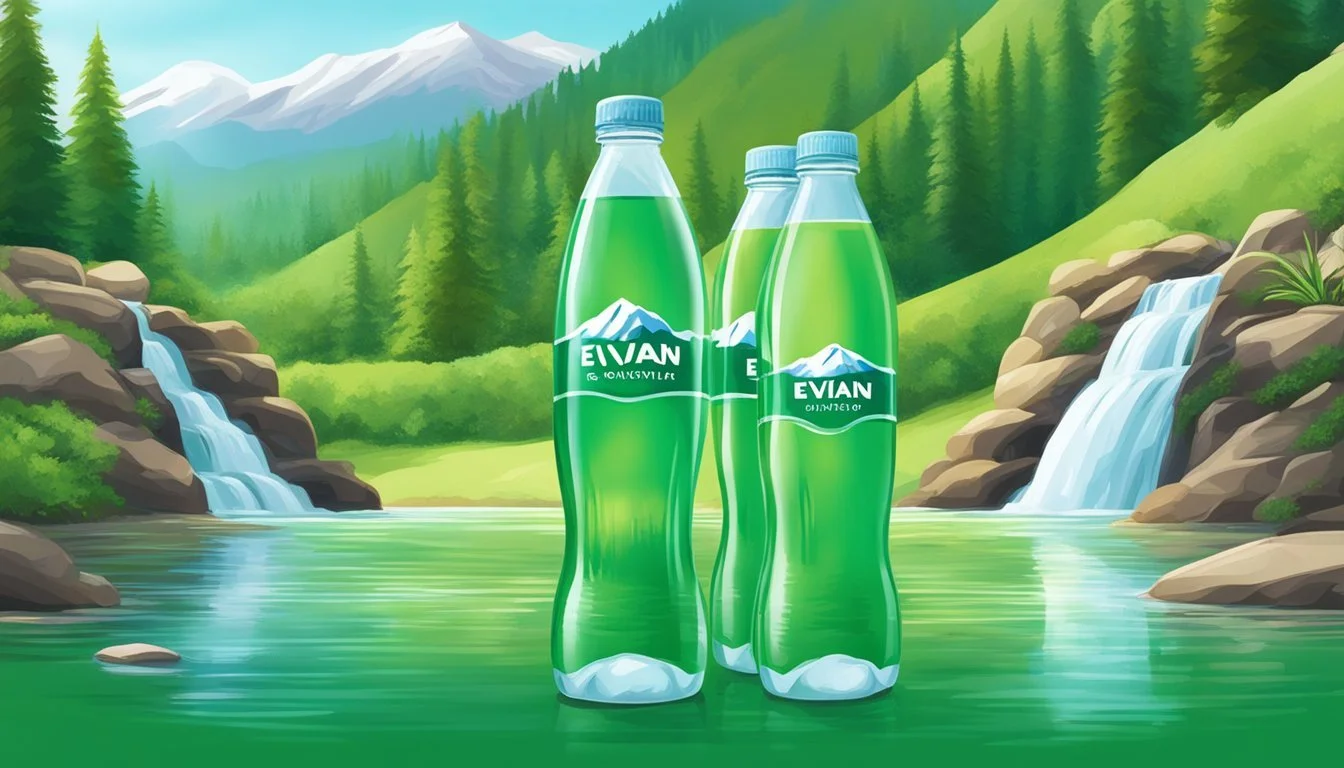Evian vs. The Well
Comprehensive Bottled Water Comparison
When it comes to bottled water, many people find themselves choosing between Evian and The Well. Evian, sourced from French Alps springs, boasts a high mineral content with notable levels of calcium and magnesium. The Well, on the other hand, prides itself on purity and sustainability, often appealing to eco-conscious consumers.
Evian's distinct mineral profile can enhance hydration and provide essential nutrients. On the flip side, The Well emphasizes its low environmental impact, which might be a crucial factor for those concerned about sustainability. Taste preferences also play a significant role, with Evian's slightly mineral-rich flavor contrasting with The Well's clean and pure taste.
For consumers seeking a balance between mineral benefits and environmental responsibility, the choice ultimately depends on individual priorities. Whether prioritizing health benefits or eco-friendliness, both Evian and The Well offer unique advantages.
Understanding Bottled Water
Bottled water varies significantly in terms of its source, composition, and market value. Popular brands and the health implications of different types of water are major points of consumer consideration.
Definitions and Types
Bottled water is water packaged in plastic or glass bottles for personal consumption. It includes various types such as spring water, mineral water, and artesian water.
Spring water originates from underground formations and flows naturally to the surface. Mineral water contains no added minerals and maintains a consistent level of natural minerals that come from its source. Artesian water is collected from a well tapping a confined aquifer, where water naturally rises to the surface.
Major bottled water brands often emphasize the origin and mineral content to attract consumers who seek specific health benefits. The composition of these waters can vary greatly, impacting factors such as pH level and mineral content.
Bottled Water Industry Overview
The bottled water industry is a multi-billion dollar market with a range of products available in supermarkets worldwide. Leading brands, such as Evian and Fiji, dominate shelf space and consumer preferences.
Health concerns and the environmental impact of plastic waste have influenced market trends. Consumers often choose brands based on perceived purity, source reputation, and packaging sustainability. Increasingly, companies are using recycled PET plastic for their bottles to address these concerns.
Given this competitive and evolving market, it is essential for consumers to be well-informed about what distinguishes one bottled water brand from another.
Evaluating Water Quality
To determine the better choice between Evian and The Well, it is crucial to examine their water quality, focusing specifically on water source, natural filtration, mineral content, total dissolved solids, and pH levels.
Water Source and Natural Filtration
Evian is sourced from the French Alps, renowned for its pristine environment. The water starts as rain and melting snow before it filters through layers of glacial sand and rock over a period of 15 years. This natural filtration process enriches the water with minerals and helps maintain its purity.
The Well sources its water from an underground aquifer. This source is protected by layers of volcanic rock, which also acts as a natural filter. The unique geology of the area contributes to the water's mineral composition, ensuring it remains clean and refreshing.
Purity and Mineral Content
Evian is celebrated for its high levels of calcium, magnesium, and silica. These minerals not only contribute to health benefits but also to the water's unique taste profile. The careful monitoring of the source and bottling process ensures that contaminants are kept at bay.
The Well, meanwhile, has a different set of attributes. Its mineral composition is marked by bicarbonate, sodium, and trace minerals. Although the specific levels vary, The Well focuses on maintaining a balanced mix that enhances both taste and purity. Both waters undergo rigorous testing to confirm their quality and safety standards.
Total Dissolved Solids and pH Levels
Total dissolved solids (TDS) indicate the concentration of dissolved minerals in water. Evian usually has a TDS of around 309 mg/L, reflecting its rich mineral profile. This is higher compared to many other bottled waters and provides a fuller taste.
The Well's TDS is typically lower, ranging between 150-200 mg/L, which offers a lighter taste while still delivering essential minerals. The pH level of Evian is close to 7.2, indicating a slightly alkaline water, beneficial for those looking to counteract acidity in their diet.
The Well maintains a neutral pH of around 7, aligning it closely with the natural pH of pure water. This balance supports overall hydration without altering the body's acid-base equilibrium. The differences in TDS and pH levels make each water suitable for different preferences and dietary needs.
Health Implications of Water Choices
Choosing between Evian and The Well involves considering the specific health benefits each can provide. This section explores how hydration influences bodily functions and contrasts the health impacts of tap versus bottled water.
Hydration and Bodily Functions
Proper hydration is essential for maintaining overall health. Water is crucial for various bodily functions such as regulating body temperature, lubricating joints, and supporting nutrient transportation.
Evian water contains minerals like calcium, magnesium, and potassium, which replenish electrolytes lost during physical activity. These minerals support muscle function and skin health.
On the other hand, The Well's water may vary in mineral content depending on its source, but bottled water generally meets standards for safe consumption and can be a reliable hydration source.
People who sweat a lot or engage in intense physical activities might prefer bottled water with higher mineral content to maintain electrolyte balance.
Comparing Tap and Bottled Water
When comparing tap water to bottled water, safety and taste are paramount. The Environmental Protection Agency (EPA) regulates tap water quality in the U.S., ensuring it meets safety standards. However, the taste of tap water may vary due to the presence of chlorine and other treatments.
Bottled water like Evian often undergoes additional filtration and maintains consistent taste and purity, appealing to those sensitive to flavors. The Well offers another source of bottled water that guarantees safe and clean consumption.
Moreover, bottled waters frequently include a balance of minerals that can surpass what is typically found in tap water, contributing to better hydration for daily consumption. Hence, the choice between tap and bottled water can hinge on preferences for taste, mineral content, and health benefits.
Brand Profiles: Evian vs. The Well
Evian's long history of sourcing water from the French Alps sets it apart, while The Well is making strides in market positioning with its unique approach.
Evian's Brand Journey
Evian has a rich history rooted in the French Alps. The brand sources its water from natural springs in Evian-les-Bains, ensuring a clean, refreshing taste with subtle mineral notes.
Evian's dedication to purity has garnered a loyal consumer base. The brand employs rigorous quality control measures, including regular pH testing, which consistently shows a balanced alkaline level.
The iconic tear-shaped bottle design is made from 35% recycled plastic, reflecting the brand's commitment to sustainability. Public opinion of Evian is strong, with many people associating it with luxurious and high-quality hydration.
The Well: Market Position and Perception
The Well is newer to the bottled water market but is quickly gaining recognition for its distinct approach. Unlike traditional brands, The Well focuses on locally-sourced, artisanal water, promoting a sustainable and eco-friendly image.
Its unique branding, which includes sleek, minimalist packaging, appeals to environmentally conscious consumers. Public opinion of The Well is positive, with many appreciating its commitment to quality and ethics.
Although it lacks the historical prestige of Evian, The Well's market strategy is effective, building a loyal customer base. The brand leverages social media for marketing, positioning itself as a modern, responsible choice in bottled water.
Consumer Experience
When comparing Evian to The Well, consumers often consider taste and convenience. Each brand has unique characteristics that appeal to different preferences and priorities.
Taste Test and Palate Preferences
Evian is sourced from the French Alps and is known for its smooth and neutral taste. Many find it refreshing and easy to drink. The balanced mineral content can also contribute to a clean finish without a strong aftertaste.
The Well, on the other hand, focuses on offering clean hydration with minimal mineral taste. Some consumers appreciate its crisp, straightforward flavor. In taste tests, preferences often hinge on whether one favors the subtle mineral notes of Evian or the pure, unembellished quality of The Well.
Palate preferences are subjective, and while some may find Evian's taste luxurious, others might prefer the simplicity of The Well. Both brands prioritize clean tasting water, but differences in mineral content can influence the final experience.
Packaging and Convenience
Evian's packaging emphasizes its premium status with sleek, clear plastic bottles that showcase its crystal-clear water. Available in various sizes, they cater to a range of usage scenarios—from single-serve bottles to larger family packs. Some consumers may notice the eco-friendly efforts, as Evian has made strides in using recycled plastic.
The Well offers practical and efficient packaging. The brand often focuses on portability and ease of use, with bottles designed for on-the-go convenience. Their water bottles are also crafted with eco-conscious materials, appealing to environmentally aware consumers.
While Evian's bottles might appeal to those looking for a touch of elegance, The Well's packaging often wins favor with those prioritizing practicality and sustainability. Each brand's approach to packaging directly impacts consumer convenience and satisfaction.
Economic and Ecological Perspectives
Evaluating the economic and ecological aspects of Evian and The Well involves looking at price differences and the environmental impact of each brand. Both brands have a significant presence in the bottled water industry but vary in their cost and eco-friendly initiatives.
Price Comparison
Price is a critical factor for consumers. Evian is generally more expensive due to its brand recognition and premium positioning. In contrast, The Well often targets budget-conscious buyers with competitive pricing.
Brand Bottle Size Average Price (USD) Evian 1 liter $2.00 The Well 1 liter $1.50
The price difference can be attributed to marketing strategies and distribution costs. Evian emphasizes quality and a luxury experience, while The Well focuses on affordability. Shoppers should consider how frequently they purchase bottled water and their budget to decide which is more economical.
Environmental Impact
The ecological footprint of bottled water is significant. Evian uses PET containers, which are recyclable but still contribute to plastic waste. The process of extracting and bottling the water involves considerable energy and resources.
The Well claims to have eco-friendly practices, such as using biodegradable materials or participating in plastic offset programs. Both brands have initiatives to reduce their carbon footprint, but the impact varies:
Evian has philanthropic programs addressing water scarcity in developing regions.
The Well engages in local conservation efforts and education campaigns.
New studies reveal bottled water has an environmental impact 3,500 times greater than tap water. This underlines the importance of choosing brands that are actively working to mitigate their environmental footprint.
Final Assessment
When comparing Evian and The Well, crucial factors include water quality, taste, health benefits, and environmental impact. Examining these elements will guide consumers in making an informed choice.
Comparative Analysis
Water Quality and Taste:
Evian water is known for its slightly alkaline pH of 7.07, attributed to its natural filtration process through glacial rocks in the French Alps. This gives it a mineral-rich profile, enhancing its taste. In contrast, The Well also offers high-quality water, though specific pH and mineral content details are less accessible. Taste tests often highlight Evian's crisp and smooth flavor, while The Well has a more neutral taste.
Health Benefits:
Evian's mineral richness, including calcium and magnesium, supports overall health and hydration. These minerals are essential for bone health and metabolic processes. The Well touts health benefits but lacks the detailed mineral composition transparency that Evian provides, making direct comparison challenging.
Environmental Impact:
Evian is making substantial strides towards sustainability. Their bottles are made from 100% recycled PET plastic, and they aim for carbon neutrality by 2025. Information on The Well's environmental efforts is limited, making it difficult to assess their commitment to eco-friendliness.
Recommendations and Conclusions
Consumer Preferences:
For those who prioritize a smooth taste and clear health benefits, Evian stands out due to its well-documented mineral content and slight alkalinity. Evian's commitment to sustainability further enhances its appeal to environmentally conscious consumers.
Price Considerations:
Evian is positioned as a premium brand, often reflected in its price. The Well may offer a more budget-friendly option, though the trade-off includes less detailed information on quality assurance and environmental impact.
Conclusion:
While both Evian and The Well provide high-quality bottled water, Evian's transparency regarding its mineral content, health benefits, and sustainability initiatives make it a more compelling choice for discerning consumers. Proper evaluation of each brand's attributes will guide users to select the bottled water that best meets their needs.
More About Evian
Evian vs Mountain Valley Spring Water: Which Bottled Water is Better?
Evian vs Richard's Rainwater: Which Bottled Water is Better?
Evian vs Whole Foods Italian Still Mineral water: Which Bottled Water is Better?
More About The Well
Cascade Mountain vs The Well: Which Bottled Water is Better?
Hawaiian Springs vs The Well: Which Bottled Water is Better?
Icelandic Glacial vs The Well: Which Bottled Water is Better?
Mountain Valley Spring Water vs The Well: Which Bottled Water is Better?
Nestle Pure Life vs The Well: Which Bottled Water is Better?
Richard's Rainwater vs The Well: Which Bottled Water is Better?
The Well vs Kirkland Signature: Which Bottled Water is Better?
The Well vs Talking Rain AQA: Which Bottled Water is Better?
Whole Foods Italian Still Mineral water vs The Well: Which Bottled Water is Better?






